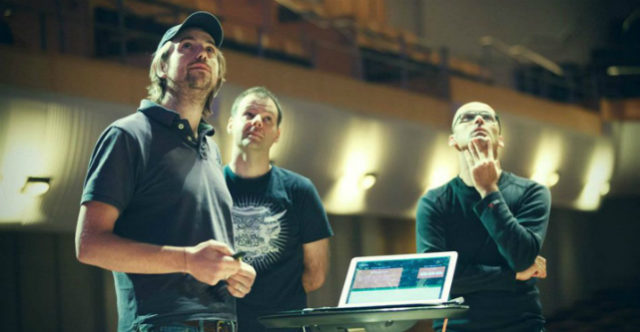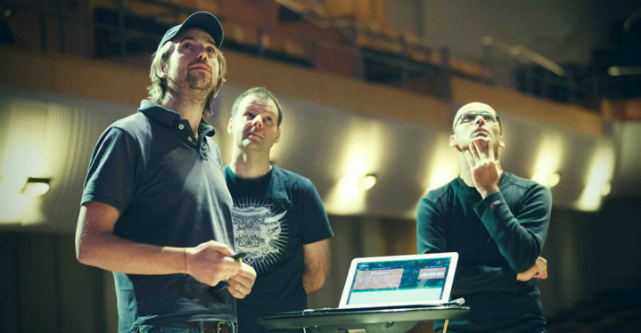Atlassian co-founder Mike Cannon-Brookes questions if the innovation agenda is dead – StartupSmart

Prominent tech entrepreneur Mike Cannon-Brookes has questioned where the federal government’s “innovation” messages have gone, as Prime Minister Malcolm Turnbull reportedly prepares to step up and take control of selling the government’s economic agenda in the lead up to this year’s federal budget.
However, one entrepreneurship expert tells SmartCompany important policy work is still going on in the background.
On Thursday the Prime Minister told an audience at a Fairfax business summit that the budget would not be fixed if the government ignored spending, pledging he would not “commit to spending money that simply isn’t there”.
The speech comes as the ABC reports Turnbull is preparing to get front and centre in selling the government’s budget messaging, ahead of Treasurer Scott Morrison, with the Prime Minister expected to deliver a series of other keynotes promoting the Coalition’s strengths as economic managers in the lead up to the May budget.
On Thursday, Turnbull discussed how budget repair was key to productivity, and called for bipartisanship on economic policies fostering innovation.
However, Atlassian co-founder Mike Cannon-Brookes has questioned just how committed the government is to innovation, more then 12 months after Turnbull first launched the government’s innovation agenda.
Cannon-Brookes told the same business summit that politicians have fallen silent on the benefits of Turnbull’s “Ideas Boom”.
“Let’s just say the dreams that a lot of people had a year ago have not been realised, if anything we appear to have gone in the opposite direction in terms of a national dialogue, which I think is sad,” he said, according to Fairfax.
“When was the last time you actually heard someone say that [ideas boom] let alone write about it in the last six months?”
Read more: Year one of Malcolm Turnbull’s innovation agenda – a SmartCompany report card
Cannon-Brookes said more needs to be done to communicate the benefits of pivoting businesses towards new ideas for growth, which includes having a discussion about the jobs that will be lost in the process.
“We should be honest and empathetic and admit there are going to be a massive amount of jobs destroyed, [ and] there are going to be massive amount of jobs created,” he said, reports Fairfax.
It’s been 15 months since the Prime Minister unveiled his “Innovation Agenda” in December 2015 and a number of pieces of the $1.1 billion policy suite are still being rolled out.
The government has only announced new funding and opportunities in recent weeks for policy pledges like the Digital Marketplace for connecting startup businesses to government tenders and funding for the Australian Research Council Linkage Projects scheme. Meanwhile, other startup placement programs are only just welcoming new cohorts.
At the time, Turnbull slated the policy package as one that would encourage Australians to use their ideas to secure the country’s economic future.
“We want to be a culture, a national culture of innovation, of risk-taking, because as we do that, we grow the whole ecosystem of innovation right across the economy,” he said.
Rufus Black, Master of Ormond College and the Wade Institute for Entrepreneurship in Melbourne, says we’re now at the stage at which actual work is being undertaken on the comprehensive policy suite.
“Very substantial work is going on — it’s really important with the innovation agenda that critical policy work is the next step,” Black told SmartCompany.
However, the big challenge for Turnbull and his innovation team going forward will be selling the idea that innovation will benefit everyone, not just technology entrepreneurs, Black says.
“The important task is to make innovation feel like an opportunity, not a threat. The danger is less about losing [policy] momentum as losing public commitment to the innovation agenda,” he says.
To make sure it doesn’t lose that public commitment, it’s vital the government keeps communicating solid examples of where traditional industries like manufacturing have created niches for themselves by employing innovative thinking, Black believes.
“The kind of things they should put front row and centre are those that have found ways of finding global niches and that are still in business,” Black says.
“It’s to highlight in traditional industries where there is something going on.”
The number one priority should be creating a policy approach that is consistent and bipartisan, Black says.
“We’ve got to create something that’s stable. Australia needs to get back to good policy formation; broad engagement across government and a long term focus.”
The policy rollout still has some way to go, and according to Innovation and Science Australia’s 2016 report into the nation’s innovation system, there’s some work to do.
The review, which looks at how well the country creates, transfers and applies knowledge, highlights more needs to be done to allow businesses and researchers to share their knowledge and create innovative projects.
This article was first published on SmartCompany.
Follow StartupSmart on Facebook, Twitter, LinkedIn and iTunes.

